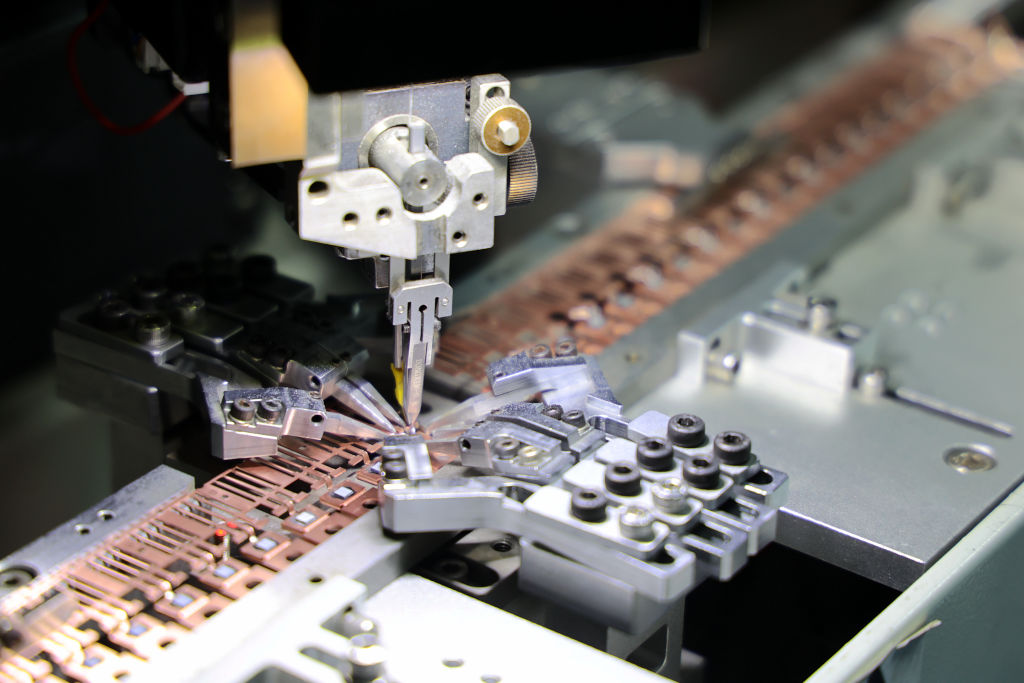The Trump administration is proceeding with probes into imports of pharmaceuticals and semiconductors as part of a bid to impose tariffs on both sectors on grounds that extensive reliance on foreign production of medicine and chips is a national security threat, Federal Register filings on Monday showed.
The filings announce 21-day public comment periods and mark President Donald Trump’s latest use of Section 232 of the Trade Expansion Act of 1962 as justification for so-called sectoral tariffs aimed at boosting domestic production of goods he says are critical to national security.
Using the 232 provision, the Trump administration has started investigations into imports of copper and lumber, and probes completed during Trump’s first term formed the basis for 25% tariffs rolled out since his return to the White House in January on steel and aluminum and on the auto industry.
The filings, which indicate the administration began the investigations on April 1, follow exclusions unveiled over the weekend for smartphones, computers and other electronics imported largely from China from Trump’s steep 125% reciprocal duties. Trump officials had said those products would soon be subject to Section 232 tariffs.
Section 232 probes need to be completed within 270 days of their initiation.
Trump has made use of tariffs a central plank of his administration’s economic and national security policies, rolling out a series of aggressive levies against trading partners that economists estimate have lifted the average import duty to around 25% from just 2.5% in matter of months.
The announcements have roiled financial markets, with most U.S. stock indexes now down 10% or more from record highs hit following Trump’s election win in November. Waves of economists have also downgraded their outlooks for the American economy, many foretelling higher joblessness and inflation in the wake of Trump’s tariffs.
A top Federal Reserve official – Governor Christopher Waller – earlier on Monday called Trump’s tariff policy “one of the biggest shocks to affect the U.S. economy in many decades.”
‘BREATHING ROOM AND VISIBILITY’
The U.S. began collecting baseline tariffs of 10% on most U.S. imports on April 5, and Trump on April 9 put on hold even stiffer levies aimed at goods at dozens of other trading partners, although the heftiest tariffs targeting China remain in place. Pharmaceuticals and semiconductors are exempt from those duties, but Trump has said they will face separate tariffs.
Trump said on Sunday he would be announcing tariffs on imported semiconductors over the next week, adding that there would be flexibility with some companies in the sector.
The U.S. relies heavily on chips imported from Taiwan, something former President Joe Biden sought to reverse during his term by granting billions of dollars in Chips Act awards to lure chipmakers to expand production in the United States.
The notices published on Monday showed the investigations will include both pharmaceuticals and pharmaceutical ingredients as well as other derivative products.
Drugmakers have argued that tariffs could increase the chance of shortages and reduce access for patients. Still, Trump has pushed for the fees, arguing that the U.S. needs more drug manufacturing so it does not have to rely on other countries for its supply of medicines.
Companies in the industry have lobbied Trump to phase in tariffs on imported pharmaceutical products in hopes of reducing the sting from the charges and to allow time to shift manufacturing.
Large drugmakers have global manufacturing footprints, mainly in the U.S., Europe and Asia, and moving more production to the U.S. involves a major commitment of resources and could take years.
“This notice gives us some breathing room and visibility on when the tariffs might be expected, and we will be certainly looking out for the lobby actions that PHRMA and the industry CEOs will be engaging in over the next three weeks,” said Bernstein analyst Courtney Breen.
“We are bracing for announcement of tariffs around mid-May and see tariffs of 10-25% as being possible, with the industry angling for a slow ramping to these tariffs and potential carve-outs,” Breen said.
Gary Shapiro, CEO and Vice Chair of the Consumer Technology Association, said that Trump’s Friday exclusion on smartphones, computers and semiconductors recognized that his tariffs will hurt consumers.
“At the same time, the shift from IEEPA to Section 232 as a legal basis for tariffs reveals the Administration’s desire for a more durable justification,” Shapiro said in a statement. “But claiming that downstream consumer tech products qualify as ‘semiconductors’ is a stretch.”
He called for “a smarter, targeted trade strategy where we team up with allies to compete with China.”
(Reuters)




















